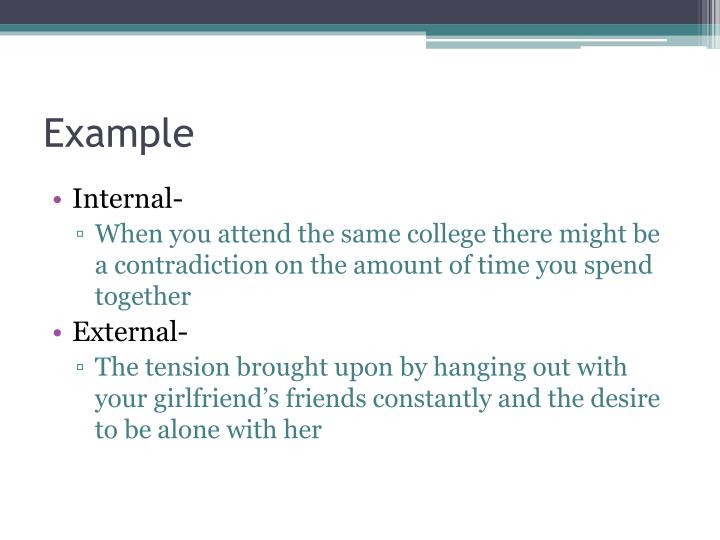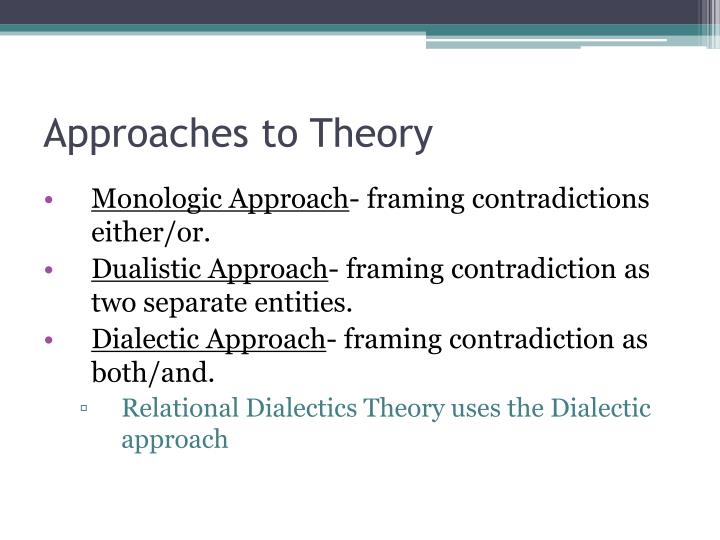


He illustrated the tensions that exists in the deep structure of all human experience. Mikhail Bakhtin applied Marxist dialectic to literary and rhetorical theory and criticism. In the Western world, these ideas hark back to the Greek philosopher Heraclitus, who held that the world was in constant flux (like fire), with creative and destructive forces on both sides of every process. Like the classic Yin and Yang, the balance of emotional values in a relationship is always in motion, and any value pushed to its extreme contains the seed of its opposite. It is rooted in the dynamisim of the Yin and Yang. Relational Dialectics is the emotional and value-based version of the philosophical Dialectic. Although Baxter’s description of Relational Dialectics is thorough, it by no means is exact or all inclusive since we all experience different tensions in different ways.

Baxter includes a list of Dialectical Tensions that reminds us that relationships are constantly changing and successful and satisfying relationships require constant attention. The Relational Dialectic is an elaboration on Mikhail Bahktin’s idea that life is an open monologue and humans experience collisions between opposing desires and needs within relational communications. When making decisions, we give voice to multiple viewpoints and desires that often contradict each other. Also, “Two’s company three’s a crowd” but “the more the merrier.” These contradictions experienced within common folk proverbs are similar to those we experience within our relationships as individuals. Montgomery simplify the concept by posing “opposites attract”, but “birds of a feather flock together”. In their description of Relational Dialectics, Leslie A. Rawlins in 1988, defines communication patterns between relationship partners as the result of endemic dialectical tensions.

The theory, first proposed respectively by Baxter and W. These are the ways in which they manage communication so that relationships can develop more intimately.Relational dialectics is a concept within communication theory. Informants share private information with a partner who is a higher stage in the relationship because they already trust and comfortably share the story with their partner. The next result is how the management of communication in interpersonal communication to develop the relationship to the stage of serious commitment is the existence of self-disclosure of the couple as told about the problems experienced even the privacy of the couple, find out the things favored and disliked partner, explain to the couple what is meant when misunderstanding occurs. And the mutual trust and understanding of each other and open to the couple to be a supporting factor to deliver the relationship to a serious stage. it is marked by how often they express their feelings to their partner. The results of research that is managed in the development of interpersonal communication relationship is the feeling of mutual love and love that underlies them to continue to survive long distance relationships that are vulnerable by conflict and the breakdown of relationships. These theories to explain the management of communication on long-distance relationships to be able to commit seriously. This study uses the theory of relational dialectics theory (RDT) or dialectical theory of relationship as the main theory, as well as privacy management theory, social penetration theory and model of relationship development as a supporting theory. But there is a long-distance relationship and stay afloat until so long can even commit seriously with his partner. Frequent conflicts due to poor communication such as low intensity and frequency of communication, misunderstandings, unresolved conflicts, high suspicion, spouse bustling, low confidence in spouses, fewer meetings with partners. LDR relationship is prone to conflict and separation.


 0 kommentar(er)
0 kommentar(er)
